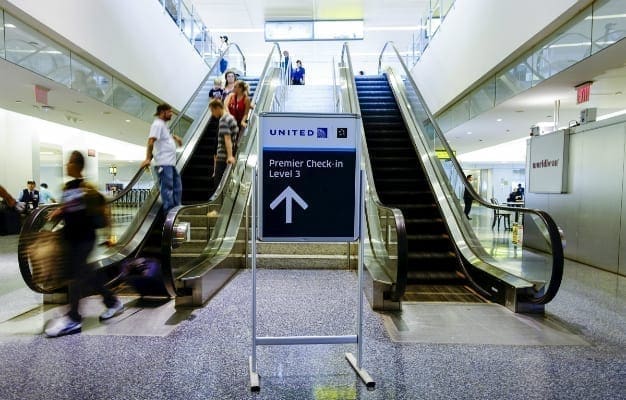The United Airlines fiasco has been all over the news — for a good reason.
A passenger who had already been allowed to take his seat had his face bloodied as police officers were asked to physically remove the man from the plane. The incident had followed what many reported as being an issue with an overbooked flight but later, it was discovered that the man had been picked in a lottery to leave the full flight after United noticed it needed four seats for crew members.

The passenger in question, David Dao, refused to leave the plane, even after the company offered $800 and a hotel stay to whoever accepted to relinquish their seat, and that’s when the police were called in to “help.”
Many have noted that legally speaking, Dao was in the right and United was in the wrong. But what many are ignoring in this story has to do with how we got to a point where a private organization needs the services of the state police to remove a customer who had not broken his contract.
If United had to compete for its customers in a free, open market, would they have treated any customer this way?
Ryan McMaken of the Mises Institute answers that question with an in-depth review of the U.S. airline industry. He explains that, in North America, the four top carriers enjoy 80 percent of the business, putting these four companies in a nearly total control of the domestic flying industry. But that occurs not because these firms form an official, government-backed cartel. Instead, government intervention is so heavy-handed that it provokes an artificial barrier to other airlines, making competition less likely to happen.
Take the U.S. ban on foreign carriers for instance. Because international airlines are not allowed to fly certain point-to-point destinations domestically, only domestic airlines have the privilege of doing so. Economically ignorant politicians defend this policy by saying that this protects American workers and consumers. Unfortunately, this particular protectionist policy has the exact opposite effect, as fewer companies mean fewer options for both job seekers and flyers.
Down the line, as competition is stifled and domestic companies enjoy an artificial monopoly over the industry, the consumer suffers greatly, as the top four carriers are allowed to act erratically and still have a virtual control of the market. With no options but to fly using one of these protected firms, these consumers are then forced to undergo severe mistreatment. In a free market, this type of incident could have destroyed United, but in an environment where protectionism rules, United will suffer for some time before it bounces back up as few companies are able to compete.




















